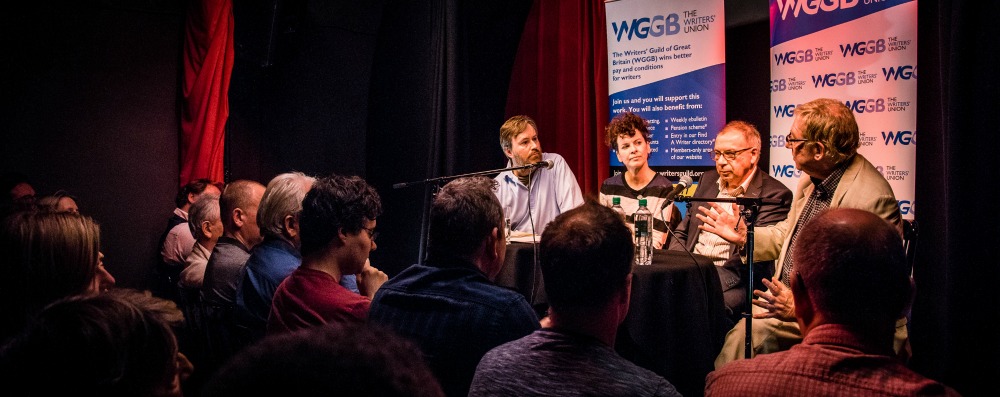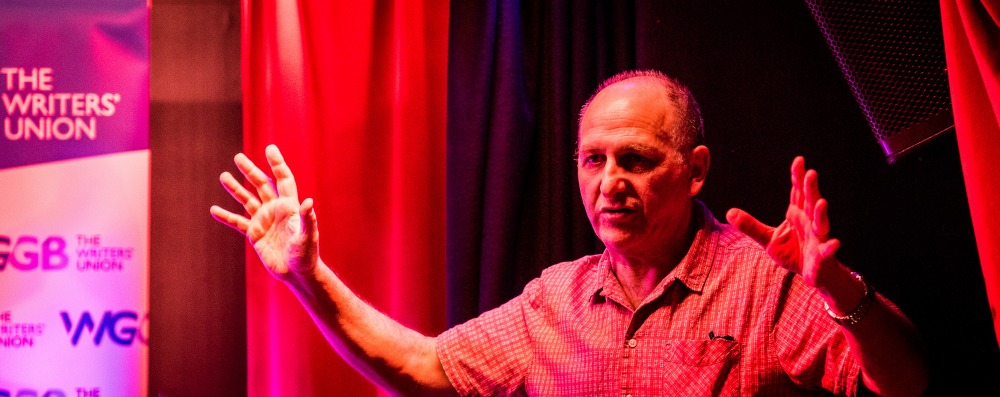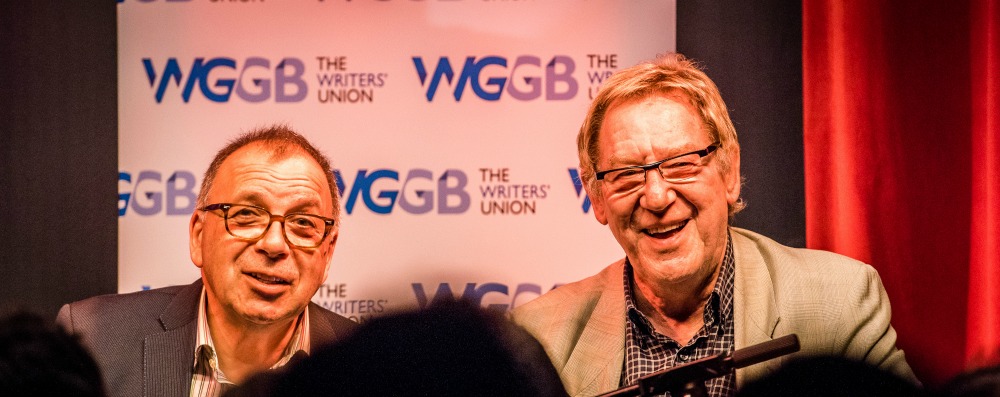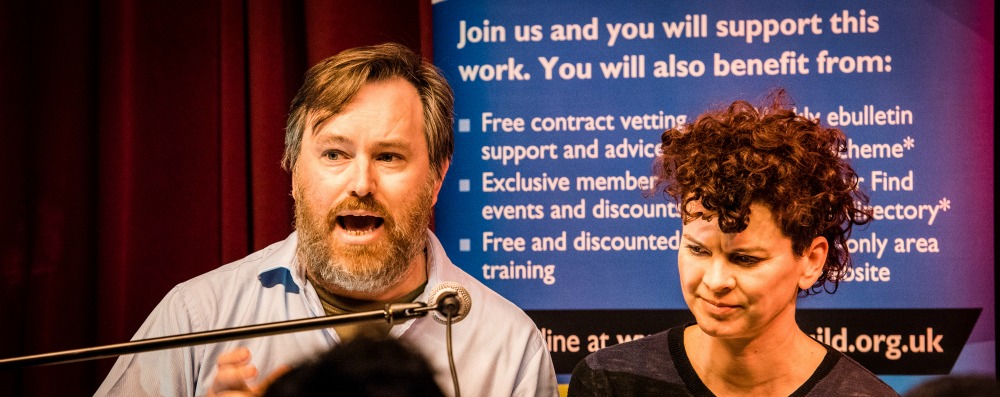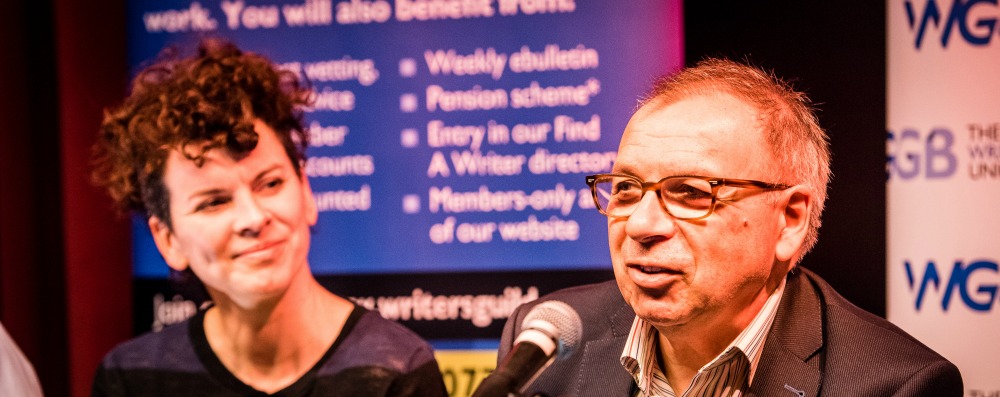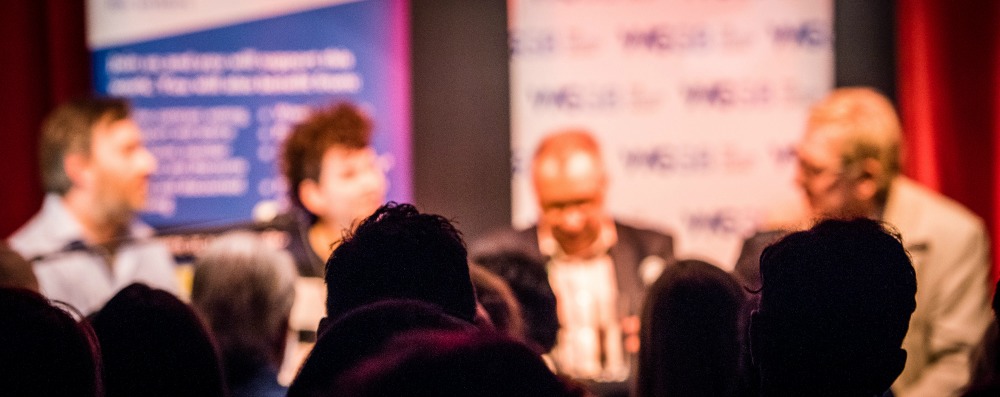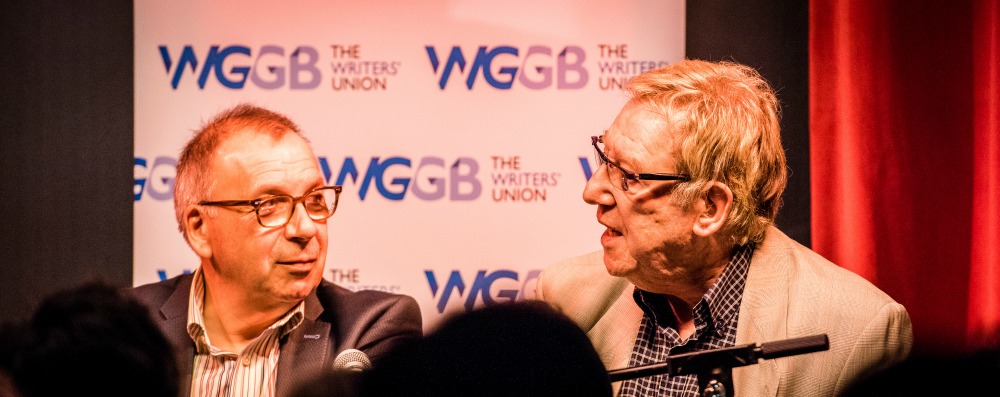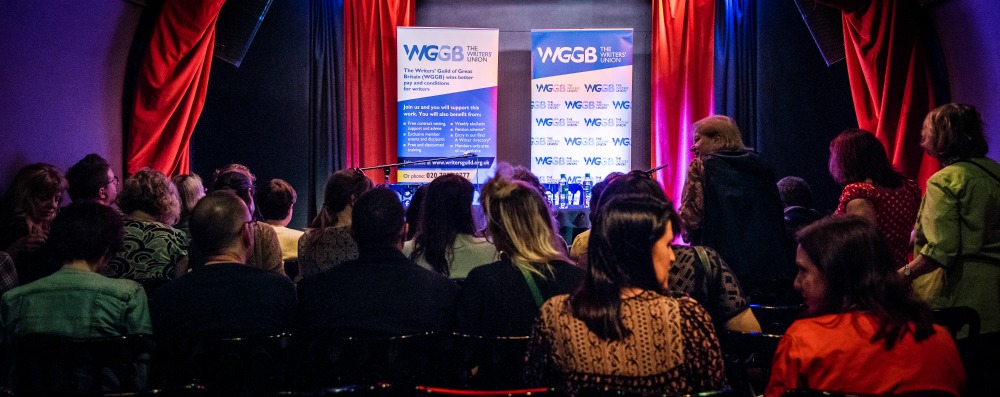Is the sitcom in crisis and, if so, how can we rescue it? That was the question posed at a WGGB panel event on 22 May 2017 at London’s Museum of Comedy, featuring comedy legends Laurence Marks and Maurice Gran, Julia McKenzie (Head of Radio Comedy for BBC Studios) and TV and radio writer James Cary.
James Cary, whose credits include Miranda and Bluestone 42, kicked proceedings off by declaring it was “nonsense” that we don’t want sitcom anymore.
Julia McKenzie agreed, admitting that while some people “slag off sitcom”, there is still an appetite for the genre, and if you find the right sitcom and the right characters there is no other artform “that elicits love and affection” in the same way. She pointed to a number of sitcoms in production this year, including Life on Egg, written by Dan Maier and starring Harry Hill.
Marks and Gran, whose big break came with the ITV sitcom Holding the Fort in 1980, gave the audience an insight into the changing face of the genre during the span of their career, and the challenges faced by writers, then and now.
Shine on Harvey Moon, their second hit show, “launched us into the stratosphere,” recalled Laurence Marks, adding that the pair never allowed themselves to become complacent. “Maurice and I had a maxim… that we must be thinking about our next show while writing the current one.”
This remains true for writers in today’s evolving broadcast landscape. “We are fighting for slots,” said Maurice Gran, “writers have to look beyond the terrestrial commissions… how do we get online… on Netflix?”
He added that the snobbery around audience sitcoms was an obstacle that needed to be overcome. “A very fine fellow writer said, ‘if it’s good enough for Frasier, it should be good enough for us’ … I realise it’s quite a big ask, but the first step is to believe it’s worth doing, and we do.”
Laurence Marks agreed, saying that an audience gives you “immediate feedback… it’s a real test… You don’t control laughter, it’s either going to make an audience laugh or not… TV comedy is a theatrical not a filmic experience.”
Getting that feedback is also possible for writers who are just starting out, he added, and before you send your script to a broadcaster you should “get mates round and read it.”
Fear of risk taking, and ‘bad habits’ picked up from Hollywood, were other barriers that writers were battling, and this was largely down to trust. Laurence Marks said he had been at meetings packed with so many people round the table that “the intros were longer than the piece you were going to read”. The best shows come when there is trust in the writers, producer and director. “When someone had an idea and someone was allowed to develop that idea… [John] Cleese and [Connie] Booth knew what they wanted to do [with Fawlty Towers]” and “didn’t need someone from the Fourth Floor coming down” to tell them.
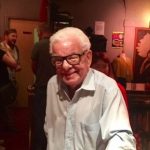
Comedy veteran Barry Cryer (pictured left), speaking from the audience, decried the current focus on “demographics” and recalled old-school execs like Bill Cotton who were “benevolent dictators” that said “go with it” rather than everything having to go through a committee.
James Cary felt that trust was even more of an issue for comedy writers, who “have to prove themselves each time.”
Even well-established names like Marks and Gran faced these barriers, they said, adding that they were lucky and could, “get turned down by the top person straight away”.
Laurence Marks said that ITV had been “frightened” of the duo’s plans for a sequel to their hit late-1980s show The New Statesman, which starred Rik Mayall as Alan B’Stard. “It’s going to be dangerous and risky,” he explained. Maurice Gran said the next step was “to attach casting to it”, joking that former Chancellor and Evening Standard editor George Osborne “was interested”.
James Cary wondered if the barriers were being set too high for comedy writers, with the expectation now that they should have an Edinburgh show behind them, or be a writer-performer. Was this limiting opportunity to only those writers who also had a talent for performing, or who could afford to stage a festival show?
Julia McKenzie said that while Edinburgh was somewhere where they built important relationships with, and spotted writer-performers, the writer-performer model was certainly not the only one, and there were lots of examples of writers who weren’t performers. “That door is not shut,” she said.
In fact, despite the obstacles, opportunities for new writers in comedy were there, and radio was a particularly fertile medium.
Julia McKenzie said that “new writers were incredibly important to us” and highlighted Radio 4 Extra’s Newsjack, an open-door, topical sketch show, as one way in.
She also suggested that, aside from sending scripts via BBC Writersroom, emerging writers should listen to comedy on Radio 4, find out what they like, identify the producer and contact them by email.
She added that Shane Allen, BBC Controller of Comedy, had used radio in recent years to develop ideas that might be suitable for TV. Radio is a tough discipline – “you really have to hone your characters.”
Maurice Gran agreed that radio offered writers a valuable opening. When writers asked them advice on starting out, they would say, “radio is a great opportunity… we can’t big up radio enough.”
The need to find new voices was also crucially important, explained Julia McKenzie. It was important to represent a variety of voices in terms of gender, ethnicity, class, disability. BBC Studios also needed to “pique the interest of commissioners”, she said, and that it was “really boring, as a listener, if you hear the same voices all the time.”
Ultimately, finding new voices and supporting new writers benefited everyone, and was crucial to keeping the sitcom alive. Laurence Marks said that a lot of good writers had learnt their craft on their shows and “it helped us”, as, for example, it enabled the duo to go to the BBC and offer more episodes.
He recalled a Guardian journalist who once expressed an interest in writing an episode of Birds of a Feather – he encouraged her to do this and she went on to pen more.
“If you nurture writers,” he concluded, “they get better.”
Read Chortle’s report and news story on the event.
And comedy writers: find out why a WGGB membership card might keep you out of jail!
Listen to the podcast of the event:
Photos: Em Fitzgerald (Barry Cryer photo by Ming Ho)

